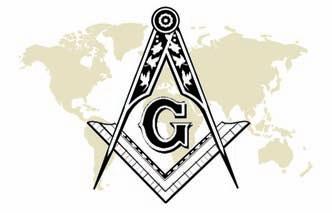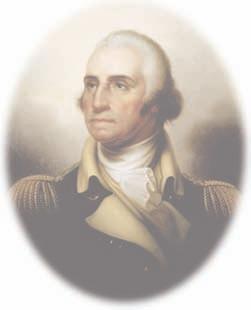
5 minute read
George Washington, The Mason
James P. Hodges ,
Ph.D.
George Washington was a Master Mason. Masonry had a great influence on his life. The ideals of Masonry, which first attracted him were; “it was a liberal democratic order in which Masons sought to lead mankind through education into a more equitable and just society.” Washington was the man he was, in part, because his concepts on life and morality were intertwined with Masonic philosophy. Ethical principles of leadership were inculcated into all the brethren. His exposure to this philosophy helped frame his ideas on life, both personal and professional. Even from the time of his youth his vision began to evolve into the concept of the brotherhood of man with service to others.
Washington found the Masonic educational concept was divided into two parts:
Each lodge was a
school to its members for the teaching of
Masonic philosophy in order to make good men better.
Each Mason would then teach the fraternity’s philosophy to the general community. Traits of effective leadership enhanced the ability to teach and to mentor others. Other important Masons during the Revolutionary War period were
Franklin, James Otis, John Hancock, Marquis de
Lafayette and John Paul Jones. James Schouler in his book “Americans of 1776,” wrote that Freemasonry, with its sacred bond of brotherhood, started to establish lodges in America about the middle of the eighteenth century. Americans who lived in the thirteen colonies followed the English tradition of Masonry. It was an institution that attracted an ever-widening class of adherents. It had ancient and solemn rituals, which attracted the esthetic George Washington. Equality of brotherhood was the spirit of the Fraternity. Within its walls, however, officers had high–sounding titles, which encouraged members to aspire to those conspicuous posts of honor. Those positions of responsibility were sought by members in order to render even more service to others. Competition among the members was to see who could do the most good. In the two-year interim between the victory at Yorktown in 1781 and the British evacuation of New York City in late November of 1783, General Washington’s military headquarters were located at Newburgh, New York. There his troops had constructed a twenty-foot by sixty-foot building called the “Temple of Virtue”. It was designed for the combined purpose of holding religious services as well as acting as a Masonic Lodge. It was in this ‘Temple of Virtue’ on March 15, 1783, that the commander in chief, through his impassioned speech, saved America from the tyranny of a military dictatorship. Many officers had suffered going without pay and allowances for up to six years. They had also been promised pension benefits and were incensed to the point of mutiny
upon hearing a report that Congress was going to dismembers despite their origin or circumstance. The band the army without ever honoring its commitments. Constitutional Convention of 1787 was one of the great The fact that George Washington was a Mason, most creative assemblies of all time. Its leaders authored of his officers were Masons, and that they were the American Constitution. William Gladstone, British assembled in the Temple of Virtue, no doubt, helped Prime Minister, described our Constitution as, “the influence them to overwhelmingly reject the mutinous most wonderful work ever struck off at a given time by plan to march on Congress and take over control of the brain and purpose of man.” Together they wrote the civilian government in a coup d’etat. the “Federalist Papers” arguing for ratification. The Washington never forgot his connection to, and affilia“Federalist Papers” is the greatest book produced by tion with, Freemasonry. As Americans in the field of govpresident he wrote in ernment. response to a letter from the Masonry fostered a better George Washington’s characKing David Lodge on August ter and presence commanded 16, 1790, “Being persuaded that a just application of the relationship between the races, the respect and confidence of both Americans and foreignprinciples on which the Masonic fraternity is founded particularly black and white, ers. Sol Bloom, in his “Masons and the Constitution,” stated must be promotive of private that George Washington had: virtue and public prosperity, I which also included Native “Imbibed the wisdom, shall always be happy to strength and beauty of advance the interests of the Society and be considered by Americans who were Masonry. It exerted a profound influence upon his them a deserving Brother.” Masonry fostered a better members of lodges. career, from the time he was raised a Master Mason in relationship between the 1753 though all the vicissiraces, particularly black and tudes of war, peace, and white, which also included Native Americans who nation building. In him the sublime truth of the order were members of lodges. During the Revolutionary found practical expression in shaping the character of War, lodges for blacks were established under the the United States of America.” “Prince Hall” system. Old established principles of President William McKinley, a Brother Mason, said the white lodges were incorporated into their teachabout George Washington’s accomplishments on the ings. In some instances, particularly in the centennial anniversary of his death in 1899, “The North, lodges opened their membership to black nation is his best eulogist and his noblest monument.” members. Masonry helped make us one nation of William Duke, Grand Master of the Grand Lodge of Virmany diverse nationalities. The different ethnic groups ginia, said about Brother George in 1899, “If we catch that had immigrated to America were assimilated into the inspiration of his great life, the dignity of his manthe American fabric by membership in a lodge. It gave hood, and the simplicity of his character, we can come everyone a feeling of belonging and fellowship. to learn how man can achieve greatness without sacGeorge Washington was instrumental in calling for a rificing himself to ambition.” If he were questioned Constitutional Convention to establish a strong central today, he would probably say that his greatest memogovernment. Of the fifty-five delegates to the Constiturial would be in the lives of those citizens, who sought tional Convention, thirty-three were Masons. Presiding to emulate in their daily lives those principles that as president, Brother George took his responsibility so guided his own life. I believe he would be most proud seriously that he never missed a single minute of the of us if we learned to keep bitterness out of our socisessions. The delegates often looked at him for his ety and spread brotherhood and tolerance. nod of approval or frown of disapproval as they During the last twenty-two years of his life, George debated issues. No doubt, Masonic brotherhood Washington attended over one hundred Masonic funcwithin the ranks smoothed the path for compromise tions, wearing his apron with pride. The best and agreement. It provided camaraderie among its continued on page 16






